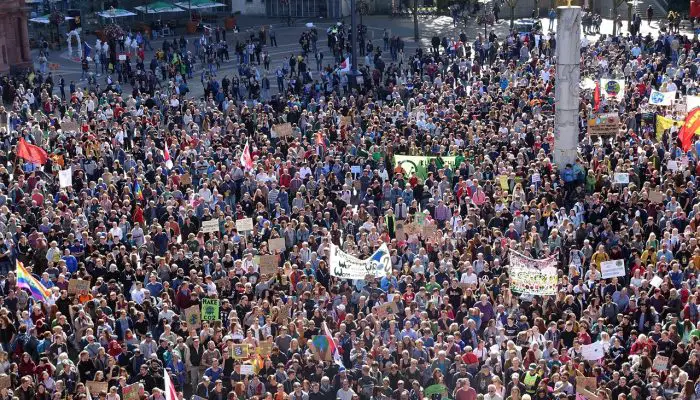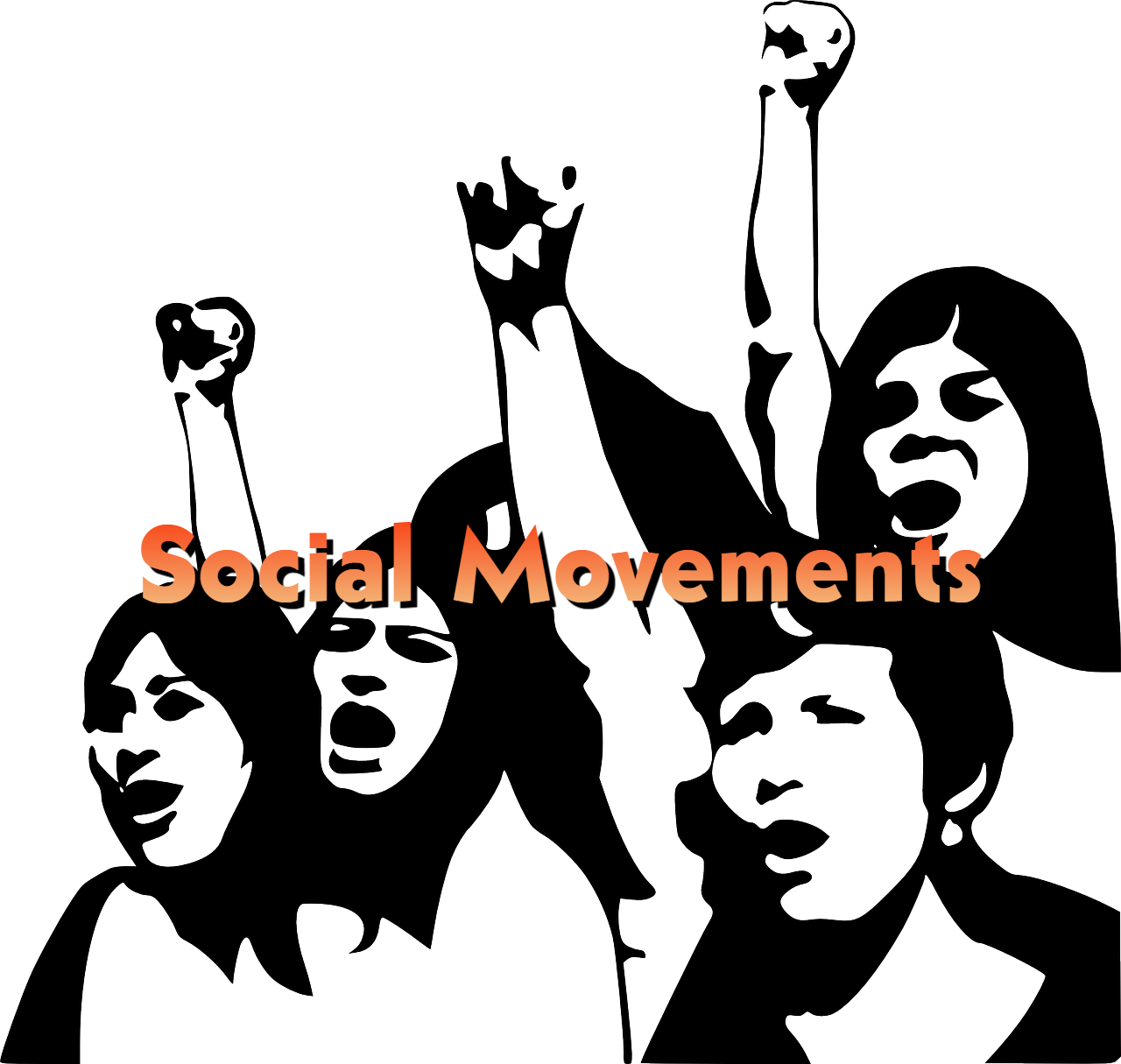Social Movements Examples Today
In today’s rapidly changing world, social movements play a crucial role in shaping society and advocating for various causes. These movements bring attention to pressing issues, drive legislative changes, and shift public perception. This article explores several prominent social movements active today, providing a detailed look at their goals, activities, and impacts.
Social movements have always been a powerful tool for societal change, from the civil rights movement of the 1960s to the feminist waves of the 20th century. Today, social movements continue to thrive, addressing a wide range of issues from environmental sustainability to human rights. These movements leverage modern tools such as social media to mobilize supporters and spread their message globally.

Environmental Movements
Climate Change Activism
Climate change activism is perhaps the most urgent and widespread environmental movement today. Spearheaded by groups like Fridays for Future, founded by Greta Thunberg, and Extinction Rebellion, climate activists call for immediate action to reduce carbon emissions, transition to renewable energy, and mitigate the impacts of global warming. These movements organize global climate strikes, advocate for policy changes, and raise awareness about the environmental crisis.
Related Article: What Climate Change Causes?
Plastic Pollution Awareness
Movements like Break Free From Plastic and The Ocean Cleanup focus on reducing plastic pollution, a critical environmental issue. These groups work to eliminate single-use plastics, clean up existing waste, and promote sustainable alternatives. Through beach cleanups, educational campaigns, and legislative advocacy, they aim to protect marine life and reduce plastic waste.
Conservation Efforts
Conservation movements strive to protect endangered species and preserve natural habitats. Organizations like the World Wildlife Fund (WWF) and The Nature Conservancy engage in conservation projects, lobbying, and public education to safeguard biodiversity. These movements highlight the importance of maintaining healthy ecosystems for the well-being of all living organisms.
Civil Rights Movements
Black Lives Matter
The Black Lives Matter (BLM) movement emerged in response to systemic racism and police brutality against African Americans. Founded in 2013, BLM has grown into a global network advocating for racial justice through protests, policy reform efforts, and community building. The movement emphasizes the importance of addressing institutional racism and ensuring equal treatment under the law.
LGBTQ+ Rights
Movements advocating for LGBTQ+ rights seek to eliminate discrimination based on sexual orientation and gender identity. Organizations like Human Rights Campaign and GLAAD work towards achieving legal equality, combating hate crimes, and promoting acceptance and inclusion. These movements have made significant strides, such as the legalization of same-sex marriage in many countries and increased visibility and representation in media.
Indigenous Peoples’ Rights
Related Article: Individual Rights Examples
Indigenous movements aim to protect the rights, lands, and cultures of Indigenous peoples. Groups like the International Indian Treaty Council and Idle No More advocate for sovereignty, environmental justice, and cultural preservation. These movements address issues such as land rights, access to resources, and the protection of sacred sites, emphasizing the need for respect and recognition of Indigenous communities.
Women’s Rights Movements
#MeToo Movement
The #MeToo movement, founded by Tarana Burke, gained global attention in 2017, highlighting the prevalence of sexual harassment and assault. This movement empowers survivors to share their stories, demand accountability, and advocate for changes in workplace policies and societal attitudes towards sexual violence. #MeToo has led to significant shifts in the conversation about consent and gender-based violence.
Related Article: Why we Need Feminism?
Equal Pay Campaigns
Equal pay movements focus on closing the gender pay gap and ensuring fair compensation for all workers. Organizations like the National Committee on Pay Equity and Lean In Foundation advocate for transparency in pay practices, policy changes, and awareness-raising initiatives. These movements aim to address the economic disparities faced by women and promote financial equity.
Reproductive Rights Advocacy
Movements supporting reproductive rights advocate for access to safe and legal abortion, contraception, and comprehensive reproductive healthcare. Groups like Planned Parenthood and the Center for Reproductive Rights work to protect and expand these rights through legal action, education, and advocacy. These movements emphasize the importance of bodily autonomy and reproductive freedom.

Economic and Labor Movements
Fight for $15 (Minimum Wage Increase)
The Fight for $15 movement advocates for raising the minimum wage to $15 per hour, aiming to provide workers with a living wage. This movement highlights the struggles of low-wage workers and calls for economic justice through protests, strikes, and lobbying efforts. The movement has seen successes in several cities and states, leading to wage increases and improved working conditions.
Gig Economy Workers’ Rights
As the gig economy expands, movements advocating for gig workers’ rights seek to address issues like fair wages, job security, and benefits. Organizations like Gig Workers Rising and Rideshare Drivers United fight for better working conditions and protections for gig workers, who often face exploitation and lack of labor rights.
Anti-Austerity Protests
Anti-austerity movements emerge in response to government measures that cut public spending and social services. These movements, seen in countries like Greece, Spain, and the UK, protest against policies that disproportionately affect vulnerable populations. Activists call for economic policies that prioritize social welfare and economic justice.
Health and Public Safety Movements
Vaccine Advocacy and Misinformation Counteraction
Vaccine advocacy movements promote the importance of vaccinations in preventing diseases and protecting public health. Groups like Vaccinate Your Family and the Vaccine Confidence Project work to combat misinformation and increase vaccine uptake. These movements emphasize the role of vaccines in eradicating diseases and maintaining community health.
Mental Health Awareness
Mental health movements aim to reduce the stigma associated with mental illness and improve access to mental health services. Organizations like NAMI (National Alliance on Mental Illness) and Mental Health America advocate for mental health education, policy changes, and support systems. These movements strive to create a society where mental health is treated with the same importance as physical health.
Related Articles: Importance of Social Psychology in Daily Life , Difference between Sociology and Psychology
Gun Control Advocacy
Gun control movements seek to reduce gun violence through stricter regulations on firearm ownership and use. Groups like Everytown for Gun Safety and the Brady Campaign advocate for background checks, restrictions on assault weapons, and measures to prevent gun-related deaths. These movements emphasize the need for sensible gun laws to protect public safety.
Political and Governance Movements
Democracy and Electoral Reform
Movements advocating for democracy and electoral reform focus on improving the fairness and transparency of electoral processes. Organizations like FairVote and the Brennan Center for Justice work towards reforms such as ranked-choice voting, campaign finance regulation, and anti-gerrymandering efforts. These movements aim to strengthen democratic institutions and ensure fair representation.
Anti-Corruption Campaigns
Anti-corruption movements strive to expose and combat corruption in government and business. Groups like Transparency International and Global Witness work to promote transparency, accountability, and integrity. These movements highlight the detrimental effects of corruption on society and advocate for ethical governance.
Freedom of Press and Expression
Movements supporting freedom of the press and expression defend the rights of journalists and individuals to speak freely. Organizations like Reporters Without Borders and the Committee to Protect Journalists work to protect press freedom, combat censorship, and support persecuted journalists. These movements emphasize the importance of free speech in maintaining a democratic society.
Educational Movements
Student Loan Debt Relief
Movements advocating for student loan debt relief seek to alleviate the financial burden on students and graduates. Groups like Student Debt Crisis and Debt Collective call for policies such as loan forgiveness, interest rate reductions, and tuition-free college. These movements highlight the impact of student debt on individuals and the economy.
Access to Quality Education
Educational movements focus on ensuring access to quality education for all students. Organizations like Teach For America and Save the Children advocate for educational equity, improved funding for schools, and support for disadvantaged students. These movements emphasize the importance of education in achieving social and economic mobility.
Curriculum Reforms
Movements calling for curriculum reforms seek to update and diversify educational content. Groups like the Zinn Education Project and Rethinking Schools advocate for inclusive curricula that reflect diverse perspectives and histories. These movements aim to provide students with a well-rounded and accurate education.
Digital and Technological Movements
Data Privacy and Security
Data privacy movements advocate for stronger protections for personal information and digital rights. Organizations like the Electronic Frontier Foundation and Privacy International work to address issues such as data breaches, surveillance, and online privacy. These movements emphasize the need for individuals to have control over their personal data.
Net Neutrality Advocacy
Net neutrality movements fight to keep the internet open and free from discrimination by service providers. Groups like Fight for the Future and Free Press advocate for policies that prevent internet service providers from prioritizing certain content or charging for faster access. These movements highlight the importance of a free and open internet for innovation and communication.

Digital Divide Reduction Efforts
Movements addressing the digital divide seek to ensure equitable access to technology and the internet. Organizations like the Digital Divide Council and ConnectHome USA work to provide internet access and digital literacy training to underserved communities. These movements aim to bridge the gap between those with and without access to digital resources.
Global Social Movements
Global Climate Strikes
Global climate strikes, inspired by the Fridays for Future movement, involve millions of people worldwide demanding action on climate change. These strikes raise awareness, pressure governments to adopt sustainable policies, and highlight the global nature of the climate crisis. The movement emphasizes the need for collective action to address environmental challenges.
International Human Rights Campaigns
International human rights movements work to protect and promote fundamental rights across the globe. Organizations like Amnesty International and Human Rights Watch campaign against abuses such as torture, unjust imprisonment, and discrimination. These movements advocate for the protection of human dignity and justice for all individuals.
Global Health Initiatives
Global health movements focus on addressing health disparities and improving healthcare access worldwide. Groups like Doctors Without Borders and the Global Fund to Fight AIDS, Tuberculosis, and Malaria work to provide medical care, support public health initiatives, and combat infectious diseases. These movements highlight the importance of global cooperation in addressing health challenges.
Impact of Social Movements
Social movements have led to significant changes in legislation, public awareness, and cultural attitudes. They drive progress by bringing attention to neglected issues, mobilizing communities, and advocating for policy changes. The impact of these movements can be seen in new laws, shifts in public opinion, and increased activism and engagement.
Challenges and Controversies
Despite their successes, social movements often face opposition and controversy. They may encounter resistance from established institutions, face misrepresentation in the media, or struggle with internal conflicts. Understanding these challenges is crucial for supporting and sustaining social movements.
The Future of Social Movements
As society continues to evolve, so too will social movements. Emerging technologies, global interconnectedness, and shifting cultural norms will shape the future of activism. Movements will need to adapt and innovate to address new challenges and opportunities, continuing their vital role in advocating for justice and change.
Conclusion
Social movements today are diverse, dynamic, and essential for addressing the pressing issues of our time. From environmental activism to human rights advocacy, these movements play a crucial role in shaping a better future. By understanding and supporting these efforts, we can contribute to a more just and equitable world.


One thought on “Social Movements Examples Today”